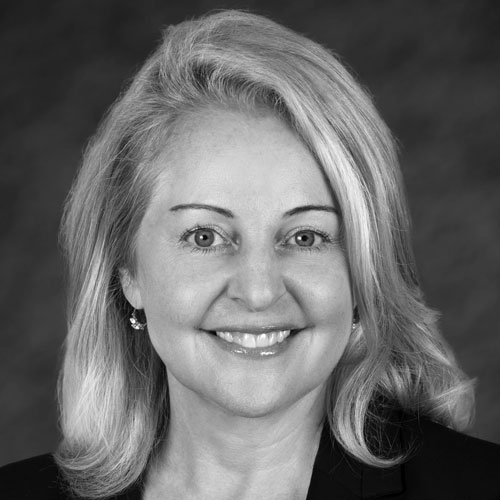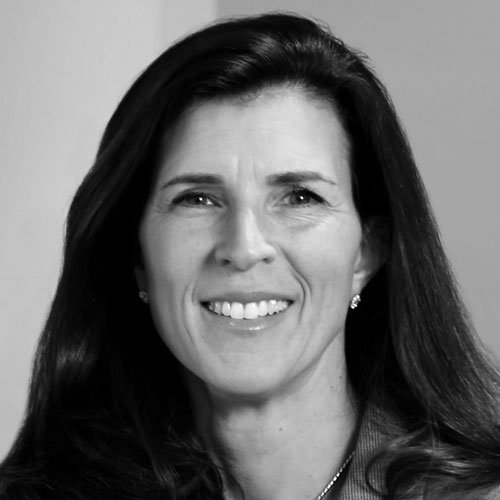Whenever there’s a big-time sporting event in the Cleveland, Ohio, area, there’s a good chance that the Greater Cleveland Sports Commission (GCSC) had a hand in putting it together. The GCSC is a nonprofit organization that organizes, attracts, hosts, and manages more than 150 amateur sporting events in the city. In addition to bringing recognition to Cleveland, the GCSC has helped generate more than $400 million in economic impact. With a $1.3 million operating budget, the organization is funded by contributions from the board of trustees and annual benefits.
“I’d say one thing I most love about my job is the fact that it’s ever-changing,” says Meredith Scerba, GCSC senior vice president of marketing and operations. “We constantly get to work with different organizations, different kinds of groups that are passionate about their sport, so it keeps the excitement and passion for us as well, because it’s constantly something new. We have a really compassionate and dedicated staff, which makes every day fun; we’re more of a family than anything.”
The GCSC focuses on two types of events: “bidded” events, which the organization bids on to bring to town, and “owned and operated” events, which the GCSC builds from the ground up. “Bidded” events already exist and are owned by governing bodies like the NCAA or the United States Olympic Committee. The GCSC works on behalf of the city to bring such events to Cleveland, though the governing body, whether it’s the NCAA or someone else, handles what happens during the event itself. The GCSC takes care of everything else—getting sponsors, booking hotels, coordinating volunteers, running operations and marketing, and other details.
“We are not the experts at every event we go after; that’s why it’s important to have those governing bodies in place. They will take care of what’s happening in the ring or on the court, on the field, or wherever it may be,” Scerba says. “The GCSC is great at doing everything around it.”
What makes the GCSC so attractive to these governing bodies during the bidding process is the “one-stop shop” feel of it all. They can get everything they need from one organization. When the GCSC wins a bid, it’s also a win for Cleveland, because everyone who comes to the city to see the event will be eating at restaurants, staying in hotels, and otherwise boosting the local economy.
Events like the NCAA Final Four, skating championships, Olympics trials, or the US Tae Kwon Do senior nationals, are what the GCSC calls “one and done.” The GCSC bids on the event, if it wins, the event comes in and does great things for Cleveland’s economy. However, some events like the Final Four have a waiting period before a city can bid on it again. Between these waiting periods, and the fact that Cleveland can’t win every bid, the GCSC must find ways to fill the gaps so that the schedule is full.
Scerba and her team fill those gaps with the “owned and operated” events. These are smaller, do not have a governing body, and usually don’t have a following or a built-in audience. The GCSC builds these events from the ground up. An example is the Continental Cup, an international youth sports festival that occurs every Independence Day weekend. Teams come to Cleveland from all over the world, and about 4,000 athletes compete in basketball, soccer, and baseball. The GCSC has hosted the Continental Cup for nine years.
“It’s been kind of the base, the foundation, of our created-events status,” Scerba says. “And we kind of evolved from there and started creating a few other ones as well. I’d say we’ve been very successful at it.”
Another thing other sports commissions might not do that the GCSC does is host “events within events” to get the community more involved. For example during the NCAA Women’s Final Four, there were 21,000 people coming to the city to watch the games, but the commission wanted to do something for the young women who aspired to go to college but may not be able to get into the arena.
The GCSC created the “Women Rock” program, which lasted a year. It began during the NCAA Women’s Regionals in 2006 and ran all the way until Cleveland hosted the NCAA Women’s Final Four in 2007. The “Women Rock” program featured a series of programs to help women from all age groups—be it elementary, high school, and college students or even professionals—feel like they were part of the Final Four. An example is the “Go, Girl, Go” program, focused on health and wellness in partnership with University Hospital.
The commission also held a Title IX conference and brought in tennis legend Billie Jean King as part of the programming. Other programs included a women’s mentorship program for college athletes. During the course of a year, these athletes got mentorship from professional women. It turned out the NCAA saw great benefits to these programs, increasing engagement well beyond the game itself. The GCSC was honored with a “Best Practice” recognition, and now the NCAA requires this type of programming to be part of the bid process going forward.
This same structure now holds true for every major event. In 2013, the GCSC hosted the Senior Games and supplemented it with “The Year of Vitality.” The year-long program was geared toward seniors and their health, wellness, and active aging through a variety of activities. “They may not be participating in the game, but we’re able to educate them on ways to be healthy and active at their ages,” Scerba says. “It’s really fun. It makes us feel connected with our community, that’s for sure.”

